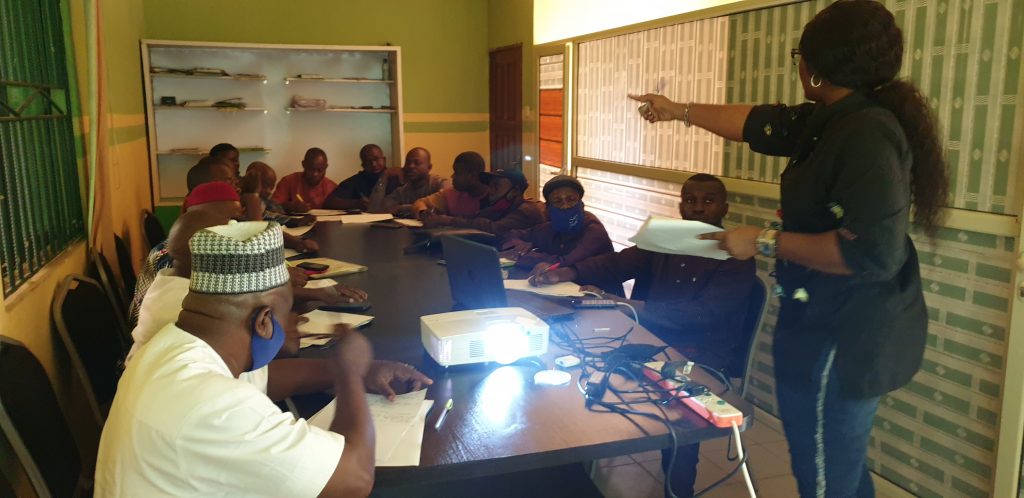Ahead of a scheduled signing of a Global Memorandum of Understanding (GMOU) between a multinational corporation (MNC) and Assa community in Ohaji/Egbema Local Government Area of Imo State, S4C hosted a one-day workshop empowering community leaders to negotiate better terms that increase their participation and ensure fair and equitable sharing of benefits from natural resources extracted from their community. 18 community leaders—comprising the community landlords, town union leaders, cabinet chiefs and youth representatives—attended the workshop held on February 4, 2021, with support from Ford Foundation.
Assa community hosts the Assa North-Ohaji South (ANOH) gas development project reputed to be one of the biggest gas production infrastructures in West Africa. The ANOH project was initiated to facilitate gas production in the large undeveloped Ohaji-South gas and condensate fields, the development of which would be coordinated with the Shell-operated Assa North field. The ANOH project is set to be one of the largest greenfield gas condensate development projects in Nigeria, with future gas production from the project expected to be about 300 million standard cubic feet of gas per day. As experience from several other resource-rich locales have shown, high-scale extractive investments of this nature can fail to translate into long term sustainable development for the host communities if not managed properly.
Usually, oil companies are often ill-prepared to engage in benefit-sharing commitments with communities. Bearing that in mind, presentations delivered at the workshop provided deep insights into the best practices of oil company and host community relations around the world. For instance, the Alaska oil and gas industry accounted for 77,600 jobs and $4.8 billion in wages, according to a recent McDowell Group study commissioned by the Alaska Oil and Gas Association. In addition to wages, the industry paid $3.1 billion in state and local taxes and royalties in FY2019, including $2.7 billion to state government and $449 million to local governments. Much of this giving is done through oil companies’ annual community grants.
Drawing from the lessons drawn from numerous best practices, the discussions delved into equitable benefit-sharing principles that can be integrated into the ANOH project through the GMoU so that they can contribute to socially inclusive and sustainable development in the host communities. From increasing community understanding of the strategies for securing negotiated arrangements with oil companies, they also understood the nature of licenses and leases held by operators.
To ensure greater stakes in the ongoing extractive activities in their community, community leaders were urged to eschew and resist divide-and-rule tactics often used to overrun community interests. Such tactics create tensions among locals, making it impossible for them to speak with one voice. S4C continues to deliver legal empowerment and advocacy support to Assa community and all other villages hosting major extractive projects in the region, in order to ensure fair community-company partnerships.




